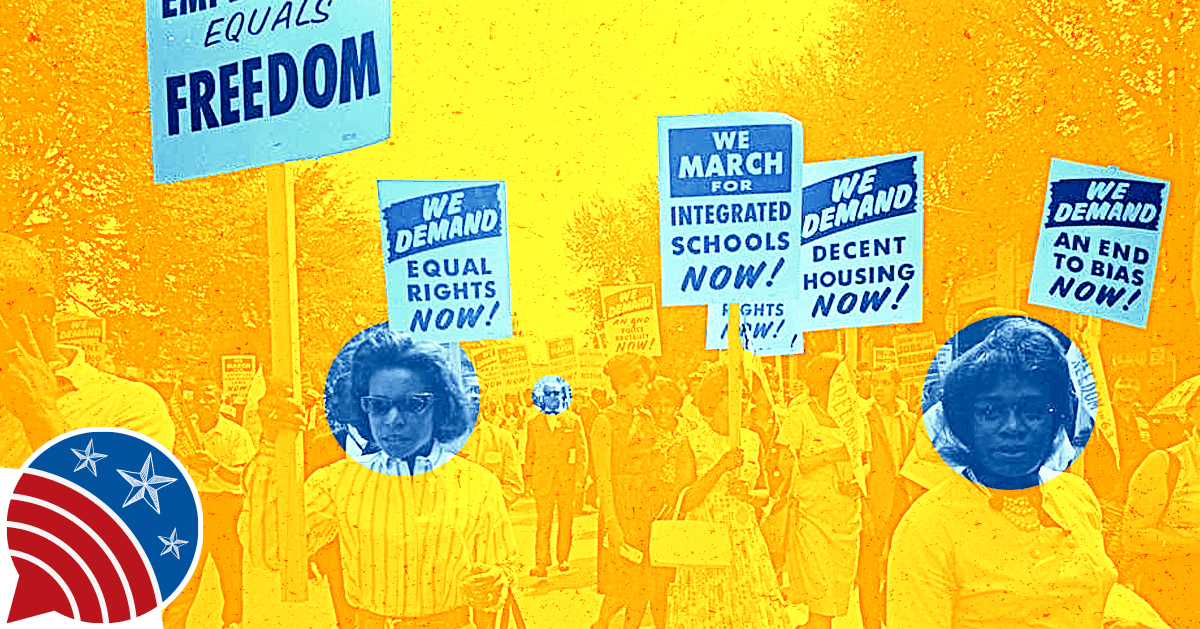
Civil Rights
Podcasts & Videos
Civil Rights at the Founding: Civil Rights, Part 1
- Watch and listen to the 60-Second Civics video below. If you'd like, you can also read along using the script that appears below the quiz. Or you can turn on the video's subtitles and read while watching the video.
- Take the Daily Civics Quiz. If you get the question wrong, watch the video again or read the script and try again.
Dr. Lester Brooks: Thank you.
Dr. Donna Phillips: Great to have you here today. Thank you. Our question today is what were civil rights at our country's founding?
Dr. Lester Brooks: During the revolutionary era, a number of Blacks and those that could read, read the Declaration of Independence. Others were listening to the conversation. So they heard about these ideals that were presented in the Declaration of Independence. And certainly there was an urge to try and bring about emancipation. So petitions were written to some of the provincial legislatures. These ideas were floating.
Many believed even that there was possibility of freedom during the war. So you find blacks sometimes supporting the Patriot cause; others supporting the British cause, because who was going to offer them freedom? And so that was one of the keys during that Revolutionary War. And it did impact the Black community.
Dr. Donna Phillips: Thank you so much for joining us, Dr. Brooks. This is all for today's podcast. 60-Second Civics where civics only takes a minute.






